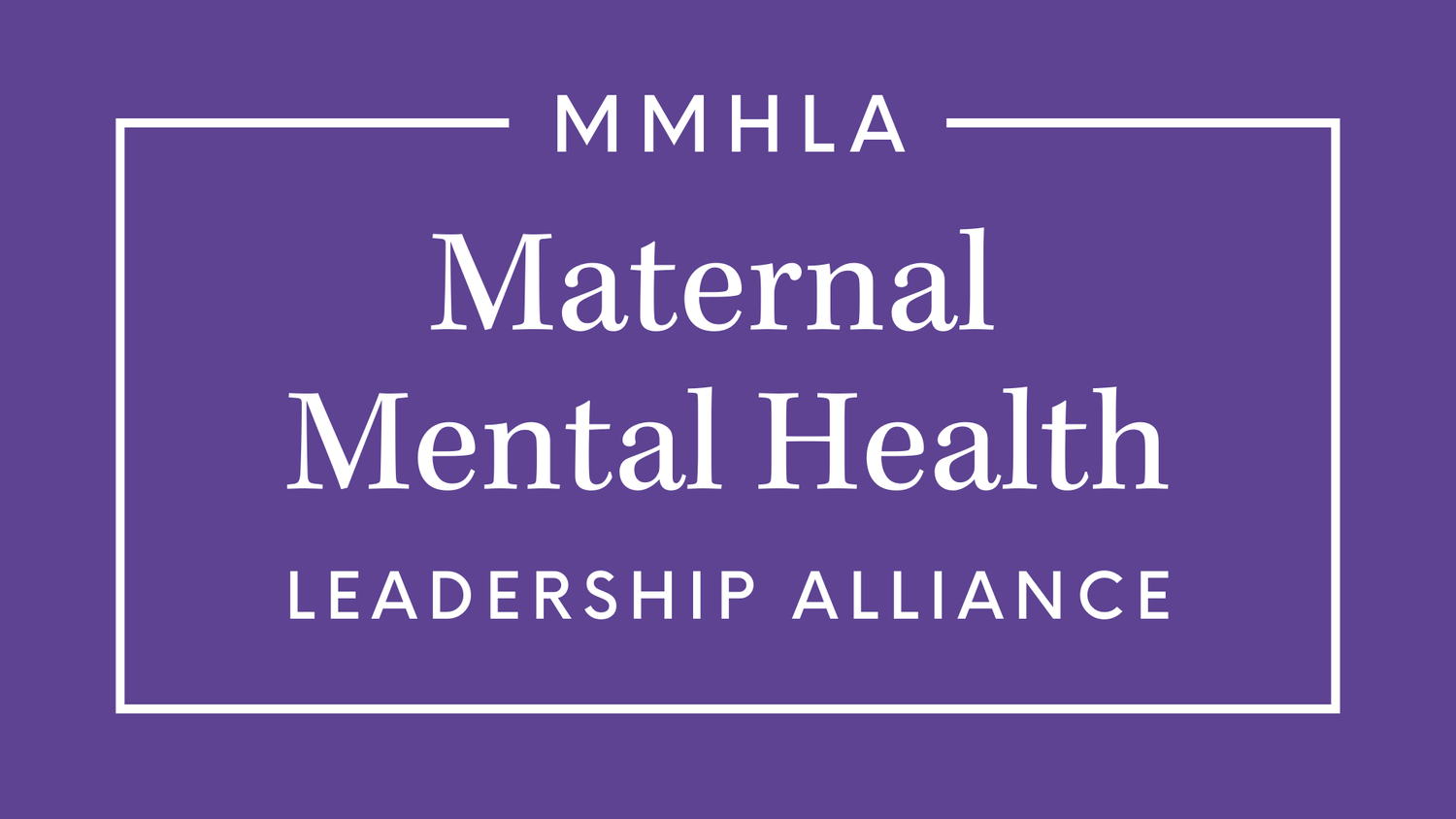Policy Update: Federal Funding for Maternal Mental Health Programs
This update is from Jamie Zahlaway Belsito, Founder and Director of Policy & Partnerships at Maternal Mental Health Leadership Alliance (MMHLA).
When the President’s Office of Management and Budget announced the proposed 2026 federal budget in May 2025, many of us in public health were reeling because the President’s budget planned to strip millions of dollars from maternal health programs.
In response to this, we ramped up our in-person and online advocacy efforts: MMHLA has been asking you to contact your elected officials about protecting the federal funding of maternal health programs, and I have been hitting the pavement in D.C. several times a month to meet with elected officials.
After months of walking the halls of Congress and ongoing outreach to our community with advocacy requests, I am thrilled to deliver positive updates on federal funding for key maternal mental health programs.
In photo: (Left) Allison Miessler, MMHLA Policy Associate, and (right) Jamie Zahlaway Belsito, MMHLA Founder and Director of Policy & Partnerships, in front of the U.S. Capitol building.
A reminder: The policies and programs we advocate for.
Each year, MMHLA advocates for federal policy initiatives to continue developing the national maternal mental health (MMH) infrastructure and to support the mental health of military mothers. Below are the programs for which we advocate:
National Maternal Mental Health Hotline (1-833-TLC-MAMA): 24/7 voice and text support in English and Spanish to mothers and others impacted by maternal mental health conditions.
Maternal Mental Health and Substance Use Disorder (MMH-SUD) Program: provides grants to states to create programs to address maternal mental health.
Congressionally Directed Medical Research Program (CDMRP): fills research gaps by funding high-impact, high-risk and high-gain projects that other agencies may not venture to fund.
This year, because the proposed President’s budget ELIMINATED funding for key maternal health programs, we joined other maternal-child health organizations to advocate for the following programs that support maternal health more broadly:
Maternal Mortality Review Committees (MMRCs): state-based, multi-disciplinary committees that assess and report data on all deaths that occur during pregnancy and the year following pregnancy.
Perinatal Quality Collaboratives (PQCs): state-based committees that address issues impacting infant and maternal mortality.
Pregnancy Risk Assessment Monitoring System (PRAMS): helps influence maternal behaviors before, during, and after pregnancy.
Residential Treatment Program for Pregnant and Postpartum Women with Substance Use Disorder (PPW SUD): comprehensive family-centered services for pregnant and postpartum women with substance use disorders.
Healthy Start: reduces infant mortality and improves maternal and infant health in at-risk communities.
We worked with the following advocacy organizations in this broader effort: American Academy of Pediatrics (AAP); American College of Obstetricians and Gynecologists (ACOG); Association of Maternal Child Health Professionals (AMCHP); Association of Women’s Health, Obstetric, and Neonatal Nurses (AWHONN); Black Maternal Health Federal Policy Collective; Bloom Coalition; March of Dimes; MomsRising; and Society for Maternal Fetal Medicine (SMFM).
The Good News
Our collective advocacy efforts have paid off! Both the House and the Senate have increased funding for maternal mental health programs. In addition, both the House and the Senate have reinstated funding for MMRCs, PQCs, PRAMS, PPW-SUD, and Healthy Start. Here’s a breakdown of the proposed funding levels, plus some legislative updates, for maternal mental health programs.
NOTE: The House and Senate each set their own budget amounts, which will eventually be reconciled into the final budget, which then goes to the President for approval.
National Maternal Mental Health Hotline
President’s Budget: $7M
House Budget: $8M
Senate Budget: $8M
Both the House and the Senate require increased outreach about the Hotline, especially to service members, veterans, and military families.
Maternal Mental Health and Substance Use Disorder Program
President’s Budget: $11M
House Budget: $13.5M
Senate Budget: $12M
Both the House and the Senate require grants that would specifically serve Tribal communities (This is a huge win! We have been advocating for funding for Tribal communities for several years).
Congressionally Directed Medical Research Program
The Senate included maternal mental health research in the CDMRP as a priority research area.
Our advocacy is working and must continue until the budget is final.
These results are huge victories! We are pleased to see that maternal mental health programs have received an increase in funding and that additional maternal health programs, which were slated for reduction or elimination, are specifically named in the House and Senate budgets, with funding assigned to each. This would not have happened without our collective advocacy efforts.
However, the federal budgeting process is not over. We will continue to keep an eye on how the House and Senate reconcile their budgets to ensure that these important programs are funded.
These programs are well-known in Congress.
Maternal mental health programs are becoming increasingly recognized by our elected officials, and it is no accident. The program names, their importance, and the thousands of lives they serve are being uplifted with every phone call, email, and meeting that you make happen — and we thank you.
We want to specifically acknowledge Congressional leaders in both the House and the Senate who have ensured these programs received funding, including members of the House and Senate Appropriations Subcommittees on Labor, Health and Human Services, and Related Departments.
What’s Next
I will continue to monitor the budgeting process as it plays out and ensure that our country’s maternal mental health programs remain included and funded. Thank you for the work you do!
STAY IN TOUCH


